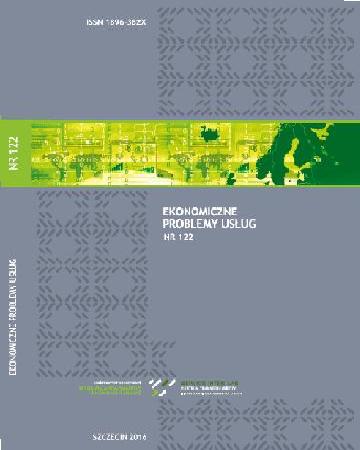
ISSN: 1896-382X
eISSN: 2353-2866
OAI



Issue archive /
nr 116 2015
Wsparcie mikro i małych przedsiębiorstw przez system podatkowy
(Support of micro and small firms by the tax system)
| Authors: |
Paweł
Przepióra
Politechnika Poznańska |
| Keywords: | fiscal preferences small and medium-sized enterprises public aid for enterprises |
| Data publikacji całości: | 2015 |
| Page range: | 10 (642-651) |
Abstract
Public aid for SME’s evokes many controversy. Politicians generally support this idea. In practice, it is difficult to support all companies, even just the micro and small. Anyway subjective approach of supporting "per se" a particular group of companies is rather irrational and inefficient, even if they are e.g. technological companies. Support should rather reward certain behaviors of enterprises (incentive approach) or reward enterprises in a specific situation which puts the company unfairly disadvantaged (situational approach). Analyzing fiscal preferences in Poland, it is clear that they basically refer to three areas: grant exemptions from income taxes, the possibility of past losses deduction and the exemptions in Special Economic Zones. Other preferential solutions, known around the world do not exist in the Polish tax system or the scale of their use is marginal. So other preferential tax solutions for small and medium-sized enterprises should be introduced or not? This question is difficult to answer. According to researches carried out by Lewiatan Council Tax most of the interviewed people are in favor of the lack of tax benefits for the SME sector. Undoubtedly, the introduction of new incentives require reliable calculation of costs and benefits.
Download file
Article file
Bibliography
| 1. | Annual Report on European SMEs 2013/2014 – A Partial and Fragile Recovery, Final Report – July 2014, European Commission. |
| 2. | Bruce D., Mohsin M., Tax Policy and Entrepreneurship: New Times Series Evidence, „Small Business Economics” 2006, nr 26. |
| 3. | Cieślak-Wróblewska A., Coraz mniej pracujących na własny rachunek, „Rzeczpospolita”, 17.04.2013. |
| 4. | Crawford C., Freedman J., Small Business Taxation, The Institute for Fiscal Studies, Legal research paper series, Paper nr 25/2011, University of Oxford. |
| 5. | Freedman J., Small Business Taxation: Policy issues and the UK, w: Taxing small business - Developing Good Tax Policies, red. N. Warren, Australian Tax Research Foundation, Conference Series 23, 2003. |
| 6. | Iniewski R., Model podatkowy MŚP - Zasady opodatkowania Małych i Średnich Przedsię-biorstw – Analizy – Rekomendacje, Rada Podatkowa Lewiatan, Warszawa 2013. |
| 7. | Internationalisation of European SMEs – final report, European Commission 2010. |
| 8. | Manzo M., Corporate Taxation and SMEs: the Italian experience, OECD Centre for Tax Policy and Administration, OECD Taxation Working Papers Series. |
| 9. | Mill J.S., Zasady ekonomii politycznej, Warszawa 1995, za: Polityka gospodarcza, red. |
| 10. | H. Ćwikliński, Wyd. Uniwersytetu Gdańskiego, Gdańsk 2000. |
| 11. | Przepióra P., Podatek VAT w małych i średnich przedsiębiorstwach – dyskusja o neutralności i kształcie regulacji podatkowych, Wyd. Politechniki Poznańskiej, Poznań 2009. |
| 12. | Poutziouris P., Chittenden F., Michaelas N., Oakey R., Taxation and the Performance of Technology-based Small Firms in the U.K, „Small Business Economics” 2000., nr 14. |
| 13. | Rogut A., Piasecki B., Główne kierunki polskiej innowacyjności. Podstawowe czynniki wa-runkujące kreowanie i powstawanie innowacji, Łódź, wrzesień 2010, Departament Ko-ordynacji Polityki Strukturalnej Ministerstwa Rozwoju Regionalnego. |
| 14. | Wartość preferencji podatkowych, Zał. B, Ministerstwo Finansów 2014. |